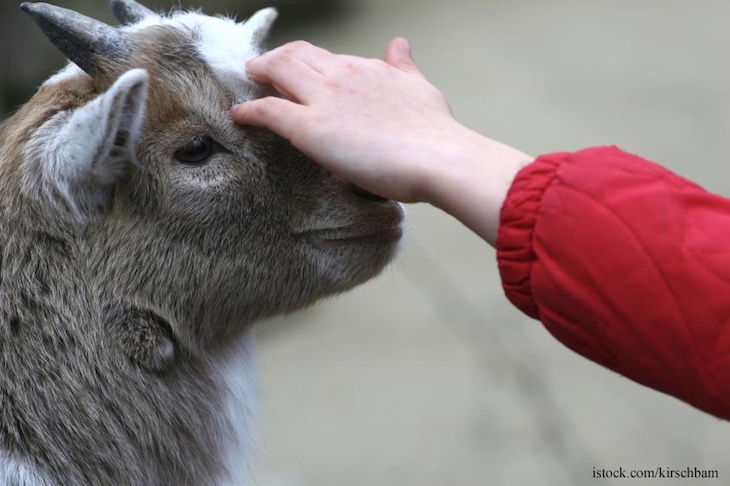Is a petting zoo the cause of the Arizona State Fair E. coli outbreak? It may be. Food Poisoning Bulletin heard from JP Martin, Media Director of the Arizona Department of Health Services.

He said, “On Nov 13, ADHS issued a Healthcare Advisory related to a two-fold increase of E. coli O157:H7, sometimes called STEC (Shiga toxin-producing Escherichia coli), cases in the month of October, including an increase in hospitalizations involving hemolytic uremic syndrome (HUS), a serious complication linked to this infection. The number of STEC cases reported over the last two weeks have been trending downward.
“At this time, ADHS has not confirmed a specific source of this increase. This increase in STEC is currently under active investigation by local public health in partnership with ADHS. As part of the investigation, public health officials are reviewing risk factors and potential exposures. Common risk factors for E. coli O157 H:7 include consumption of raw or undercooked beef, leafy greens, unpasteurized milk, as well as animal exposures at petting zoos.
“As with any setting that involves animals or food, prevention remains critical. ADHS continues to remind the public to wash hands thoroughly with soap and water after contact with animals or their environments, before eating or drinking, and after using the restroom. Parents and caregivers should supervise children around animals, discourage hand-to-mouth behaviors in animal areas, and avoid bringing food or beverages into petting zoo spaces. These steps significantly reduce the risk of STEC infection.”
Petting zoos have been the cause of many serious outbreaks over the years. The largest was at the Cleveland County Fair in North Carolina in 2012, where more than 100 people were sickened. The Pritzker Hageman law firm won a $7.55 million lawsuit for a child with E. coli and HUS against Dehn’s Pumpkin Patch in 2016. Most recently, seven children were sickened in a 2023 outbreak at the Tennessee State Fair.
Baby animals are irresistible to children. And ruminant animals, such as goats, cows, and sheep carry E. coli bacteria in their intestines. The animals do not get sick since they don’t have the vascular receptors for the Shiga toxins that STEC bacteria produce. Calves, baby sheep, and baby goats excrete the pathogen in their feces, where it can get onto everything from their fur to the stalls, the hay, and gates and railings; it can even aerosolize.

Food Safety Attorney and Food Poisoning Bulletin Publisher Eric Hageman
Then when children put their fingers in their mouths or eat without washing their hands, they can ingest the bacteria and can get very sick. Noted food safety attorney Eric Hageman, who has represented many clients’ families in E. coli and HUS lawsuits, said, “It’s always a tragedy when a child gets sick from a preventable illness. We would hope that organizers of these events put up signage warning of hazards of petting zoos and offer hand washing stations. And we hope that all of the children involved recover completely.”
The symptoms of an E. coli infection include a possible fever and vomiting, severe and painful abdominal cramps, and bloody diarrhea. Symptoms of HUS, a type of kidney failure, which is a complication caused by Shiga toxins, can include little or no urine output, lethargy, easy bruising, and pallor.
If your child attended that fair and has been ill with the symptoms of an E. coli infection or HUS, see your doctor. They may be part of this outbreak.

If your child has been sickened with an E. coli infection, please contact our experienced attorneys for help with a possible lawsuit at 1-888-377-8900 or text us at 612-261-0856. Our firm represents clients in lawsuits against grocery stores, restaurants, and food processors.




